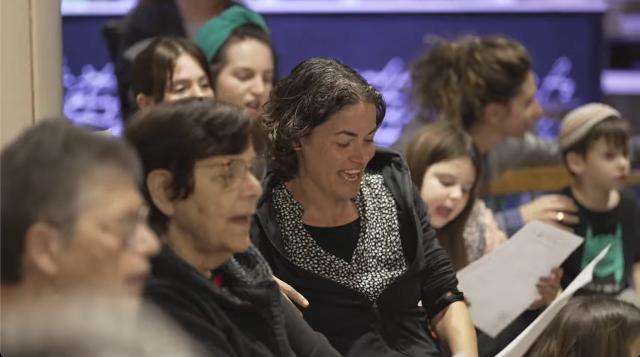Israel’s success is the inevitable result of ancient choices
Why is Israel so hated? It’s because she’s successful. That’s why so many consider Israel abhorrent, for she threatens Chinese, Iranian, Islamofascist, Biden administration, UN, EU, WEF, and generic leftist dreams of hegemony. None of these groups and ideologies seeks individual happiness and fulfillment. Israel’s example of what is possible by creating high-trust societies through self-control, not government control, is what threatens the totalitarians’ top-down control model.
Israel’s high-trust society stems from the ancient Jewish notion of self-restraint. Imagine the First Temple era. Yehuda, a farmer, intends to bring an animal to sacrifice at the First Temple. Unfortunately, a local lion badly mauls the animal, making it unacceptable as a Temple offering. Under Jewish law, Yehuda cannot kill the animal to feed his family or work it in the fields. As a planned sacrifice, he must care for it for its natural life—and he does so voluntarily because God expects it of him.
It's this “voluntarily” part that’s enormous when it comes to Israel’s success. The Torah’s laws, which the rabbis then explained, did not have human enforcement methods. The individual, without external coercion, was wholly responsible for carrying out these mandates. Did some violate these restrictions? No doubt! But most in the Jewish community did not. They expected that all community members would follow these laws because their consciences told them to do so.

Image: YouTube screen grab.
Even today, Jews seek to live with others who share that conscience. This results in high-trust communities, where people leave their doors unlocked at night, know that a heated discussion will not end in bloodshed, and expect genuine smiles from others.
The presumption of trust permits certain activities that might otherwise be fraught and, therefore, impossible. The mass singing event is one such amazing activity that reflects underlying trust leading to happiness in Israel.
Within the Jewish community, mass singing events have been a common experience for a very, very long time, perhaps back when Yehuda was farming his land and traveling to Jerusalem, where he might participate in responsive singing with the Temple choir. When Israel experienced the barbarian invasion on October 7, Israelis came together to sing.
I Have No Other Country was composed in 1986. Musical groups in northern Israel created this version after the October 7 massacre in the south. The singers span all ages, an extremely rare experience in today’s West. Poignantly, the final frame shows pictures of both the civilians slaughtered and the soldiers from the north who have died: soldiers killed in battle who lived in these northern communities:
The next video is a mashup of four separate songs. It was made in Netanya during the Hannukah following the massacre. Again, the mix of ages singing together in this video reflects how deeply this custom has penetrated all generations of Israelis. It is here, at such events, that children learn from the older generations to sing together with strangers.
This last video comes from the survivors of both Be’eri, 10% of whose members Hamas massacred, and Kibbutz Hatzairim. The government evacuated survivors to hotels across the country. Here, they come together to sing. The rectangular pendants around their necks each contain the name of a hostage.
The song is To Believe. They sing, “Everything that was here will change [starting] from tomorrow; time can still fix everything that is broken and [yet] remains.” Amazingly, by Western standards, all these people are from Israel’s left wing.
It says something profound that leftists, reading about Israel’s self-restraint, trust, and social cohesion, would almost certainly characterize it as racist (although Israel is a remarkably racially mixed society, just not a culturally mixed one). According to these accusers, people must adjust to the idea that peace is unattainable until humanity is properly homogenized. In the end, it becomes our choice between a much-sought-after cohesion between independent individuals, on the one hand, and externally imposed conformity, on the other.
I have personally chosen a community that presumes the right to happiness and accepts personal responsibility for the community. With communities empowered by repeated acts of conscience, precious energy is not wasted enforcing dubious standards that can change on a dime. Mass Group Singing in Israel is an example of energy and creativity well-spent. I hope you enjoyed the songs. They exemplify the high quality of human life that is possible—and the future of humanity, if we are lucky.





